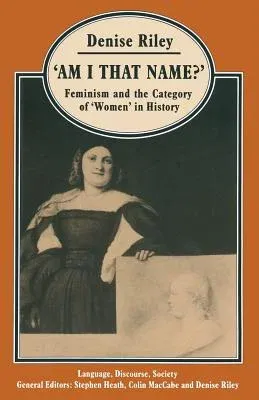Denise Riley
(Author)'Am I That Name?': Feminism and the Category of 'Women' in History (1988)Paperback - 1988, 28 October 1988

Qty
1
Turbo
Ships in 2 - 3 days
In Stock
Free Delivery
Cash on Delivery
15 Days
Free Returns
Secure Checkout
Part of Series
Language, Discourse, Society
Part of Series
Language, Discourse, Society (Paperback)
Print Length
126 pages
Language
English
Publisher
Palgrave MacMillan
Date Published
28 Oct 1988
ISBN-10
0333346130
ISBN-13
9780333346136
Description
Product Details
Author:
Book Edition:
1988
Book Format:
Paperback
Country of Origin:
US
Date Published:
28 October 1988
Dimensions:
21.59 x
13.97 x
0.81 cm
Genre:
Feminine
ISBN-10:
0333346130
ISBN-13:
9780333346136
Language:
English
Location:
London
Pages:
126
Publisher:
Weight:
181.44 gm

